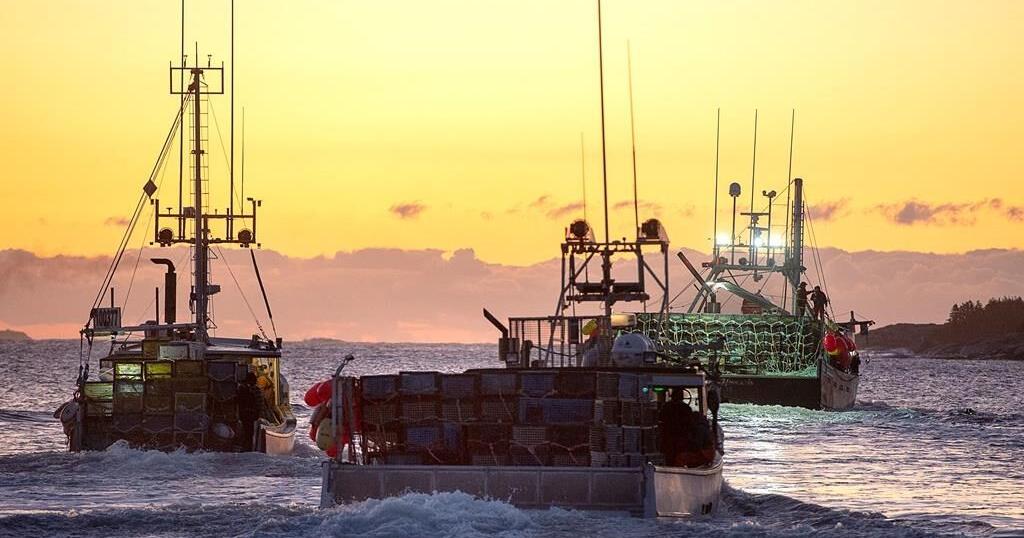HALIFAX – Federal fisheries officers in Nova Scotia say they’re refusing some enforcement duties because of threats to their safety, as they await Ottawa’s response to their complaints.
The union representing the officers says its members have been shot at, that people have tried to steal their firearms, and that officers — and their families — have been threatened for trying to stop illegal fishing.
“They’ve been exposed to firearms such as automatic weapons (against) which their current body armour does not protect them,” Shimen Fayad, president of the Union of Health and Environment Workers, said in an email Wednesday.
She said a federal labour investigator is reviewing documents from the Fisheries Department and from officers who have refused some enforcement duties on the water and on wharfs in the province.
We expect to hear something next week,” Fayad said regarding the process authorized under the Canada Labour Code to refuse dangerous work.
Commercial fishers, meanwhile, are calling for increased enforcement, saying that illegal and unregulated fishing is becoming more frequent across the province.
“We want real, tangible enforcement activity placed upon the illegal, black market lobster activity that’s ongoing throughout the Maritimes,” said Dan Fleck, executive director of the Brazil Rock 33/34 Lobster Association, in a recent telephone interview.
Under provisions of the Canada Labour Code, the fisheries minister is empowered to decide after an investigation whether “danger exists,” and issue mandatory directions for safety changes.
But if Steven MacKinnon’s office finds that there isn’t any danger on the water, then department employees aren’t entitled to refuse work, according to the law. That decision can be appealed, however.
Fayad said that when her members first brought their concerns to the government, the Fisheries Department found there was “no danger” to the workers, which led to the labour minister’s review.
Doug Wentzell, the federal Fisheries Department’s regional manager for the Maritimes, said in a recent interview, “we do have a number of officers that have refused field work …. and we’re working through that process with the (federal) ministry of labour.”
The civil service manager said that despite the refusals “the majority of our officers are in the field in the region and we’re also supplementing those resources with officers from other DFO regions.” He estimated there are about 100 field officers in the Maritimes.
A government source with knowledge of the refusal to work applications said that about half of field officers in southwestern Nova Scotia — home to the region’s most lucrative lobster fishery — are not carrying out enforcement duties in the field due to the safety concerns.
The source, who spoke on the condition of anonymity because of the risk of employment reprisals, said the work has become more violent as fishers are increasingly unwilling to accept officers’ authority. He also said tensions with some Indigenous fishers are rising.
“We’ve raised our problems with management. Management has chosen to ignore the issues,” he said.
“As we go through this problem, officers have found themselves in dangerous situations. There have been three officers hit by vehicles. We’ve had a struggle where a person tried to take an officer’s firearm. There’s been very serious altercations,” he said.
Efforts to enforce fisheries regulations in the lucrative fishing of baby eels, known as elvers, in East Coast rivers over the spring were also a source of tension with First Nations, he said.
However, the chief of a First Nation whose members fish lobster off southwestern Nova Scotia said Indigenous fishers are not aggressors, but rather are continuing to fish to support and feed their families.
“Our Mi’kmaq fishers have been through enough. DFO Officers are not the victims, and we will not accept this narrative,” wrote Chief Michelle Glasgow, the leader of Sipekne’katik First Nation, in an email.
She said the lobster fishers from her community are exercising their treaty rights and will continue to do so. “All they (federal fisheries officers) need to do is respect this. They cannot continue to harass our people and tell us how much we can eat and how much we can feed our people. If they are afraid, it is not by our actions.”
Chief Wilbert Marshall, co-lead of fisheries for the Assembly of Nova Scotia Mi’kmaw Chiefs, said in an emailed statement that “violence on the water is unacceptable. No one should have to be concerned about their safety when going to work — whether they work for (DFO) conservation and protection, or if they are fishing.”
“We have seen these types of conflicts for over 20 years and things need to change. We have been working to build bridges with DFO and conservation and protection officers on the treaty rights protected fishery to help create a more coherent environment for everyone. We want a future where these types of safety issues can be avoided, but we need true collaboration to get there,” said the statement.
In 2020, the tensions flared in southwestern Nova Scotia to the point where Indigenous traps were cut, one boat was destroyed and a lobster pound that handled Mi’kmaq catch was burned to the ground.
RCMP Supt. Jason Popik, the recently appointed senior officer for Southwest Nova district, said in an interview that DFO officers continue to be “out on the water” off Meteghan, N.S., and that there were two significant enforcement efforts in recent weeks in southern Nova Scotia.
“It’s showing the community that they’re working, they’re trying … I’m not seeing a big (work) stoppage down there.”
This report by The Canadian Press was first published Oct. 3, 2024.
